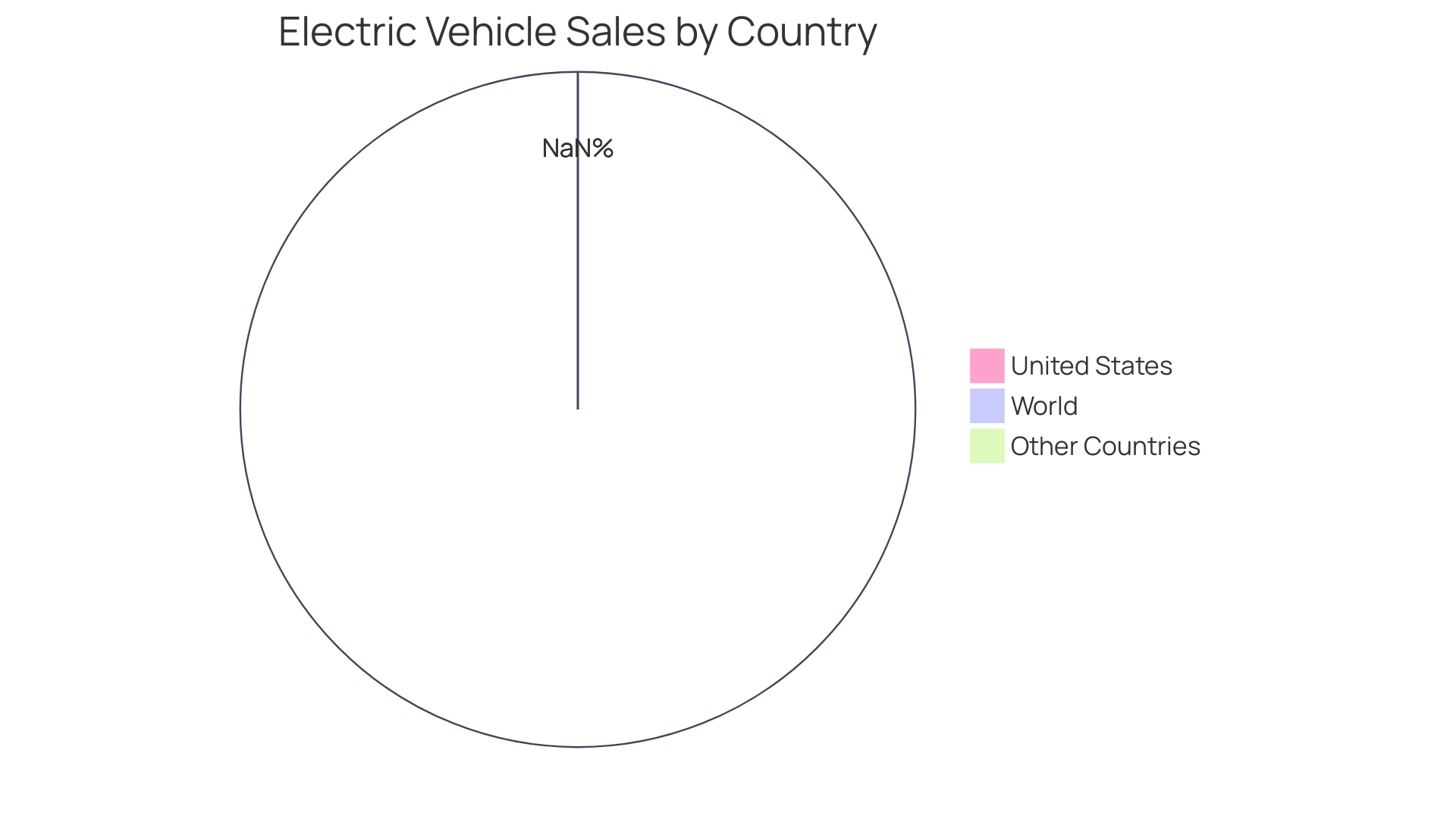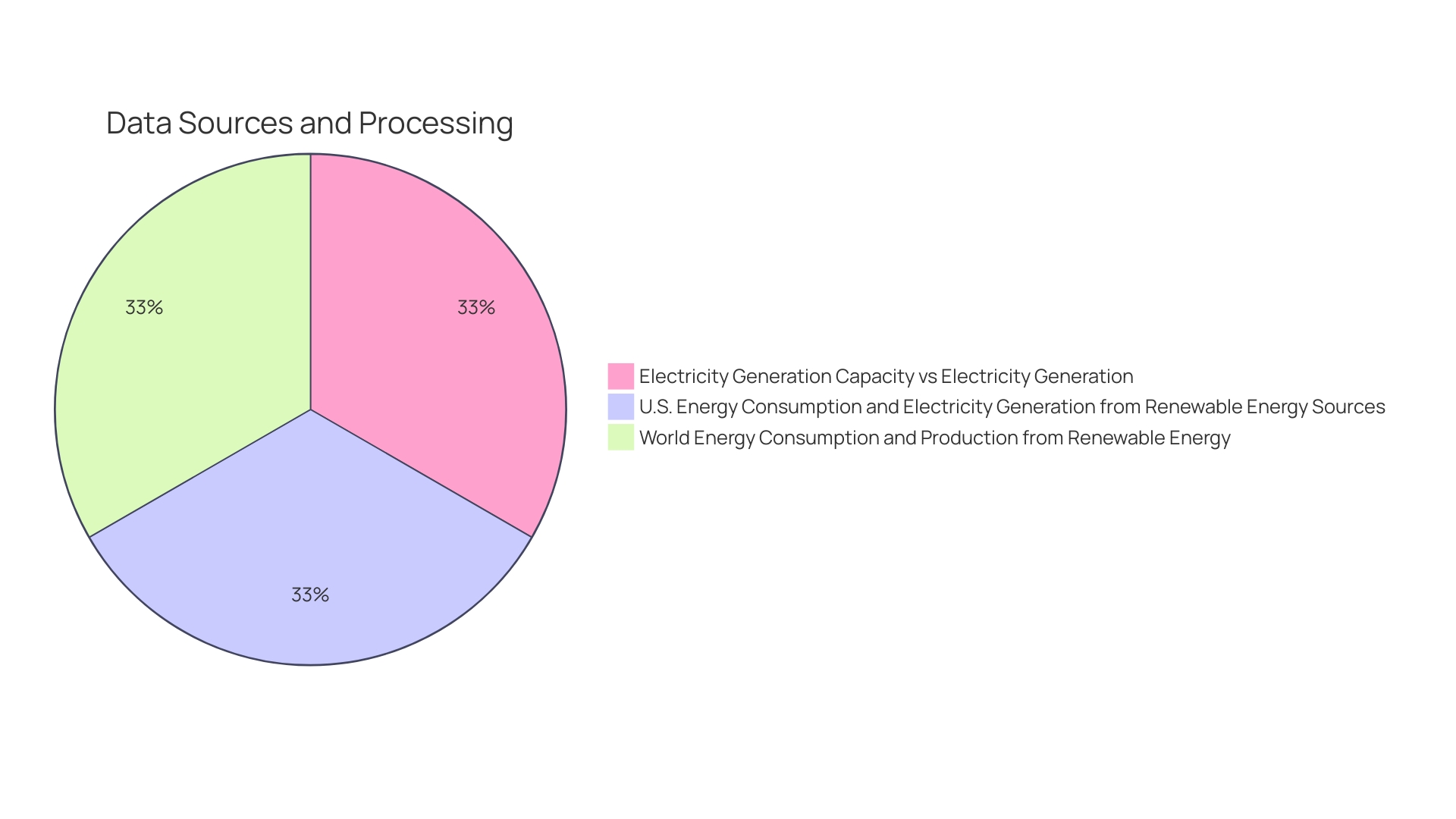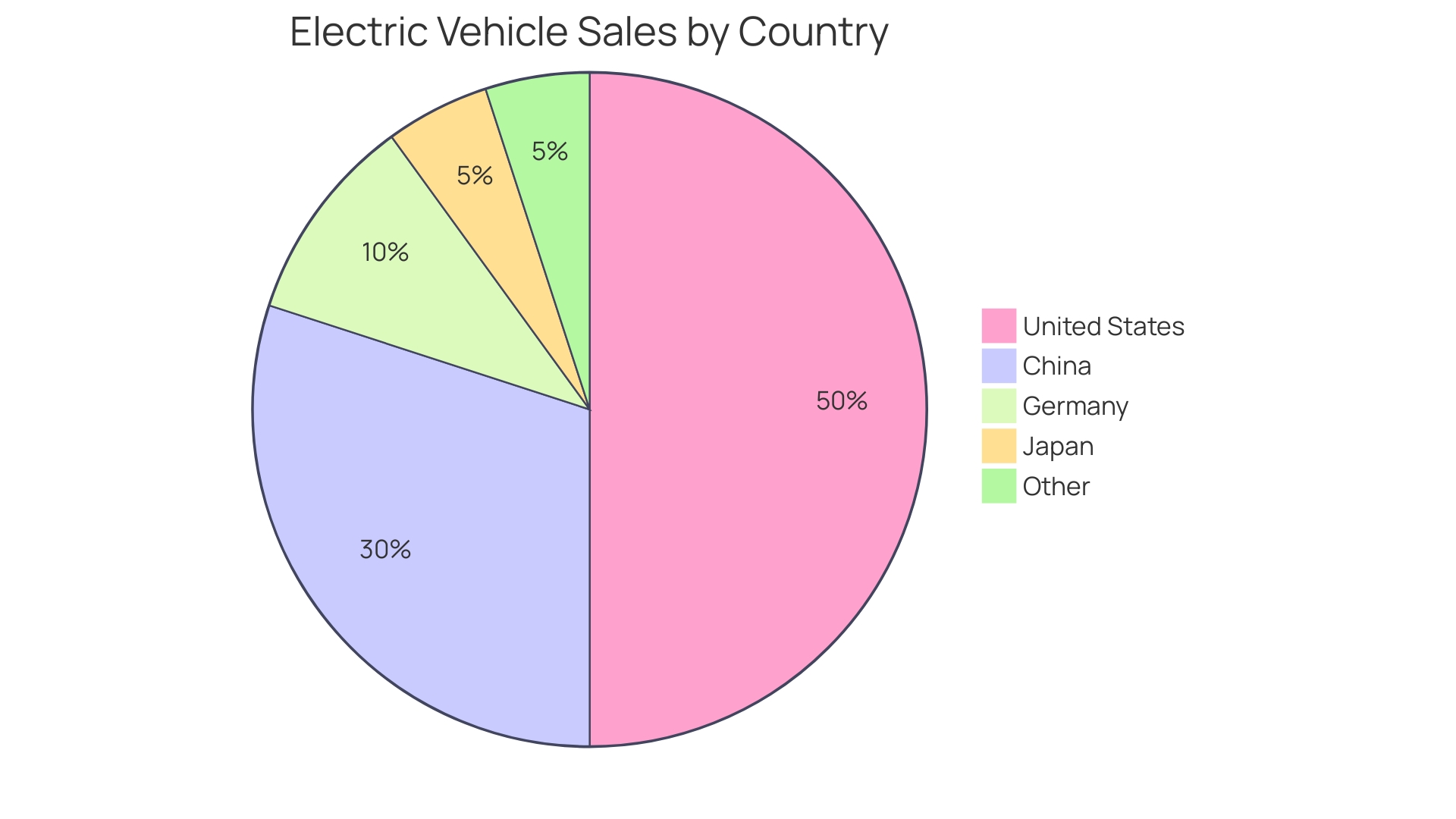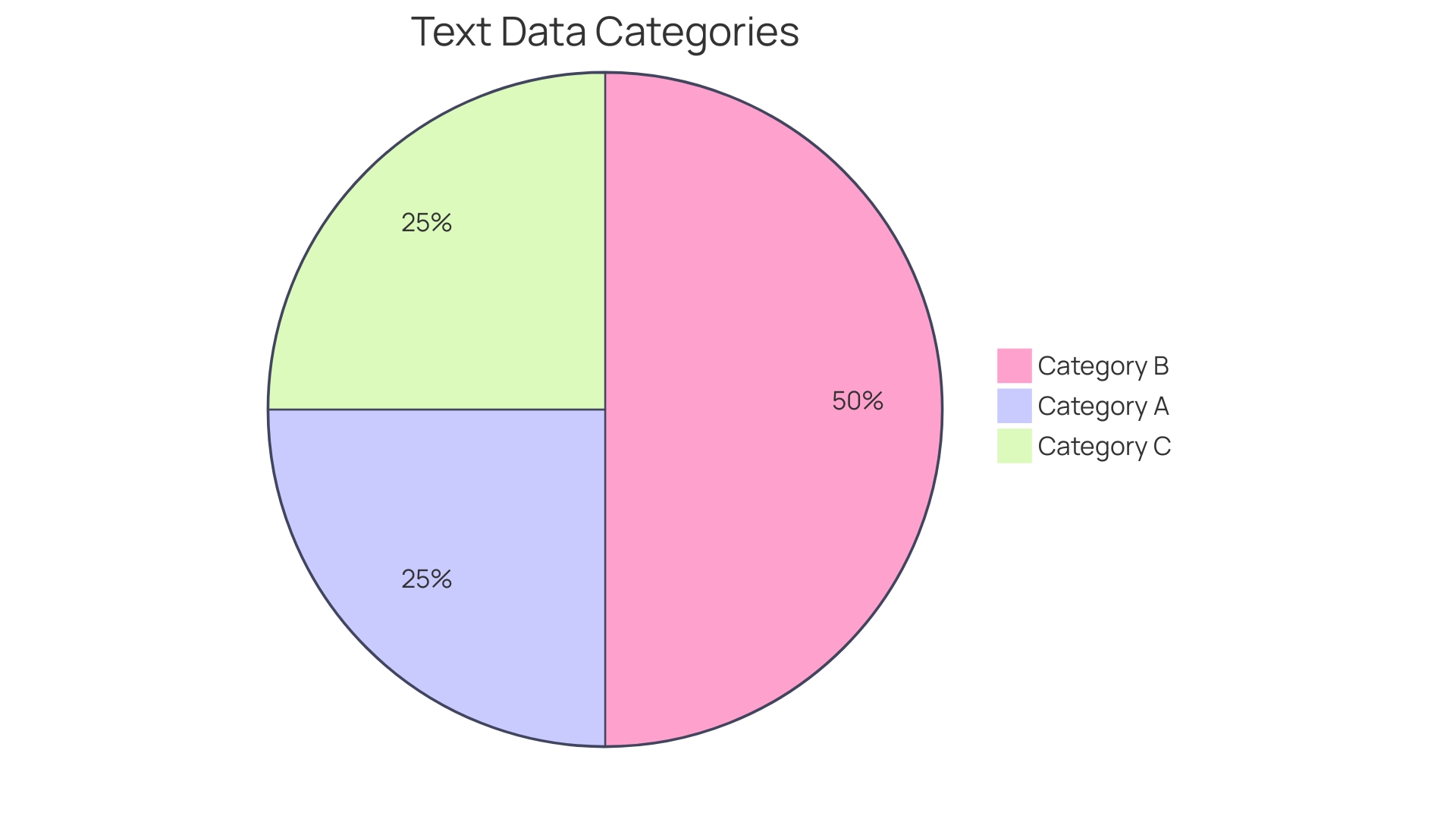Introduction
Fuel-It Technologies is at the forefront of the renewable fuels industry, revolutionizing the way we think about transportation fuel. Their innovative approach involves the use of sustainable biofuels, advanced hydrogen fuel cells, advancements in electric vehicle battery technology, the integration of artificial intelligence in fuel management, and harnessing solar energy for fuel production. This article provides technical insights and analysis for an audience with a deep understanding of the renewable fuels industry.
Join us as we explore the latest advancements in the field, the potential for a greener future, and the role of Fuel-It Technologies in driving these innovations.
Sustainable Biofuels: A Renewable Alternative
Fuel-It Technologies is pioneering in the realm of sustainable biofuels, offering a beacon of hope for eco-friendly transportation fuel. These advanced biofuels are crafted from non-edible organic materials like poplar trees and agricultural residues, addressing the critical issue of food security impacted by first-generation biofuels made from corn and sugarcane. This innovative approach not only curbs greenhouse gas emissions but also reduces reliance on fossil fuels, contributing to a cleaner environment.
A key breakthrough in the biofuel industry is the use of Co-solvent Enhanced Lignocellulosic Fractionation (CELF) biorefineries, which separate biomass into its core components, thus optimizing the production of various bioenergy products. The adoption of second-generation biofuels is vital, as underscored by industry experts and analysts, due to their minimal impact on food resources and compatibility with existing fuel infrastructures.
The biofuel market, especially in Europe, is witnessing a surge, propelled by ethanol, biodiesel, and renewable diesel. Supported by EU policies, these fuels are carving a path for Europe to lead in the global shift towards sustainable energy.
Moreover, the technological advancement in the field is highlighted by the inauguration of the LanzaJet Freedom Pines Fuels plant, the first of its kind facility to convert ethanol into sustainable aviation fuel. This marks a significant milestone in achieving decarbonized aviation and showcases the potential of biofuels to transform transportation sectors, including marine applications, where sustainable biofuels offer a cleaner alternative to traditional marine fuels.
Hydrogen Fuel Cells: Clean Energy for the Future
Hydrogen fuel cells, using the most abundant element in the universe, represent a promising avenue for clean energy generation. These electrochemical cells convert the chemical energy of hydrogen into electricity, with water vapor as the sole emission. This technology is not just environmentally friendly; its continuous operation hinges merely on the steady supply of hydrogen and oxygen.
Leveraging this principle, Fuel-It Technologies is pioneering in the realm of efficient hydrogen production and storage solutions, paving the way for hydrogen fuel cells to be a cornerstone of sustainable transportation.
The versatility of hydrogen fuel cells extends from powering electric vehicles, which boast long-range capabilities and swift refueling times, to serving as a reliable source of electricity. A recent breakthrough by chemical engineers has introduced a nickel-iron-molybdenum (NiFeMo) based catalyst that promises to lower the energy required for water electrolysis – a process central to producing green hydrogen. Given the catalyst's enhanced efficiency and corrosion resistance, it stands as a testament to the advancements in hydrogen fuel cell technology.
Fuel cells are likened to standalone power plants, with the capacity to generate substantial electricity on-site, thereby enhancing energy security and electrical reliability. As noted by Neil Chatterjee via RealClear Wire, fuel cells are becoming integral in meeting the increasing electricity demands of industries like data centers. Moreover, Honda's hydrogen business strategy highlights the 'hydrogen circulation cycle,' which underscores the potential of hydrogen as a renewable energy carrier.
Honda's strategy encompasses the generation of green hydrogen via water electrolysis, its indefinite storage, and the use of fuel cells to convert it back into zero-emission electricity.
The global hydrogen ecosystem is at a pivotal juncture, with over 1,400 projects announced worldwide, signaling significant investment and potential for capacity development. This burgeoning project pipeline, coupled with supportive decarbonization regulation, indicates a strong market trajectory for hydrogen fuel cells. However, the industry also faces challenges such as cost increases and regulatory uncertainties that must be navigated.
Fuel-It Technologies remains at the forefront of these developments, contributing to a cleaner, more sustainable future through the advancement of hydrogen fuel cell technology and its applications within the transportation sector.
Advancements in Electric Vehicle Battery Technology
As the transportation sector evolves, electric vehicles (EVs) have emerged as a key player in the shift towards sustainable mobility. Fuel-It Technologies is at the forefront of this transformation, pioneering advancements in electric vehicle battery technology to meet the growing demands of energy storage capacity and charging speed. The essence of a 'better' battery encompasses a multifaceted approach to enhance energy density, longevity under various temperatures, and overall safety — a complex challenge that the industry is eager to address.
Significant strides in battery innovation are evident in the efforts of companies like Amprius. Utilizing silicon and nanowires, these new technologies have sparked a revolution by significantly improving upon established lithium-ion frameworks. The delicate balance between improving one performance metric without compromising another is a nuanced endeavor, yet Amprius's silicon-based batteries have shown promising results.
The urgency for improved EV batteries is driven by global market trends, with projections indicating that the number of EVs on the road could surge from 16.5 million in 2021 to nearly 350 million by 2030. Concurrently, energy demand from EV batteries is expected to reach a staggering 14 terawatt hours by 2050. To meet these projections, batteries must not only be energy-efficient but also durable, rapidly rechargeable, and able to operate across diverse temperature ranges.
Exploring beyond conventional lithium-ion technology, the development of lithium-sulfur, solid-state, and sodium-ion batteries offers glimpses into a future with greater range and security. The emergence of Thermal Energy Storage (TES) devices, which boast high round-trip efficiency, also complement the integration of renewables like solar and wind energy, storing excess energy for later use.
Amidst this innovation, battery sales have exhibited exponential growth, doubling every two to three years. This trend reflects the robustness of S-curve dynamics that signify the emergence of new technologies. As production costs decline and capacities increase, parallels are drawn to Moore's Law, showcasing the potential for consistent improvement over time.
The battery landscape is poised for diversification, and as new solutions emerge, the promise of better EV batteries becomes an increasingly tangible reality.

Role of Artificial Intelligence in Fuel Management
Incorporating artificial intelligence (AI) into the fuel management ecosystem is transforming the industry with enhanced decision-making capabilities. Ai's role in fuel management, akin to its impact on grid operations, is multifaceted, allowing for a more profound comprehension of current conditions, informed decision-making, and foresight into potential challenges. Feng Qiu's research at Argonne National Laboratory exemplifies this, where Ai's predictive analytics optimized daily grid planning for operators like MISO—a glimpse into the potential AI holds for fuel management.
Fuel-It Technologies is at the forefront of this innovation, employing AI to fine-tune fuel usage, oversee fuel quality, and simplify logistics. By deciphering complex data streams from sensors and IoT devices, AI algorithms discern trends, pinpoint irregularities, and implement instant modifications, leading to fuel efficiency gains.
The recent collaboration between IBM and FuelCell Energy harnesses generative AI to enhance the performance and longevity of fuel cells, underlining the significance of AI in advancing renewable energy technologies. Similarly, in the transportation sector, AI has catalyzed progress, with autonomous vehicles and intelligent traffic systems contributing to a market valuation of nearly $3 billion in 2022. As the transportation industry continues to evolve, AI stands as a pivotal force driving sustainability, safety, and convenience, while minimizing congestion, costs, and emissions.
AI's transformative power in fuel technologies and transportation solutions is evident, mirroring the intricate changes observed in broader energy systems, as noted by experts like Feng Qiu and Cary Coglianese. Their insights reveal an industry at the cusp of a fully automated future, where AI not only streamlines operations but also fosters an environment powered by clean, efficient energy.
Solar Fuels: Harnessing Solar Energy for Fuel Production
The transformative power of solar energy is reshaping the landscape of renewable fuels, with Fuel-It Technologies spearheading innovation in this domain. By integrating photovoltaics and solar thermal systems, they are unlocking the potential to convert solar energy into clean electricity or heat. This energy then serves as a catalyst for producing hydrogen and synthetic fuels, paving the way towards a sustainable, carbon-neutral future.
Harnessing solar power has seen impressive strides, evidenced by the rise in solar panel efficiency from 17% in 2012 to a robust 22-29% today. This leap in efficiency, coupled with a dramatic cost reduction — from $5 per watt in 2000 to under 50 cents — has positioned solar photovoltaic (PV) as the fastest-growing energy source on a global scale, as reported by the International Renewable Energy Agency (IRENA).
In the pursuit of green energy solutions, the United Nations Framework Convention on Climate Change (UNFCCC) showcased a breakthrough technology capable of generating hydrogen and high-quality cylindrical graphite using solar energy and biogas. This innovation, if scaled, could revolutionize fuel cells, microgrids, and utility-scale hydrogen production. A testament to the technology's potential, SoCalGas is considering project support, pending approval by the California Public Utility Commission (CPUC).
Elsewhere, in the remote Krincing Village of Java, a solar-powered water pump has become the linchpin for irrigating rice fields, demonstrating the local impact of solar innovations. Meanwhile, the Noor complex in Morocco stands as a beacon of solar prowess, with its combination of photovoltaic panels and molten salt heat transfer fluid, capable of powering over two million citizens and operating through the night.
As solar energy advancements continue to gain momentum, 2023 marked a significant milestone for the US solar industry with an unprecedented installation of 32.4 GWdc of capacity, a 51% increase from the previous year. This surge in solar adoption is a clear indicator of the industry's commitment to charting a path towards a more renewable and resilient energy future.

Innovations in Fuel Supply and Management
Fuel-It Technologies is at the forefront of fuel supply chain innovation, creating solutions that not only revolutionize fuel storage and handling but also ensure the highest standards of fuel quality control. With the transportation industry as its stage, Fuel-It Technologies employs state-of-the-art technologies paired with deep industry knowledge to deliver a sustainable and dependable fuel supply, essential for uninterrupted transportation services.
In a world increasingly focused on sustainability, Fuel-It Technologies takes inspiration from advancements across the globe. For example, Yokogawa's commitment to optimizing production and assets through digital technologies reflects the transformative power of integrating sophisticated control systems into fuel management. Meanwhile, projects like the one in Namie town, Fukushima Prefecture emphasize the potential of hydrogen as a clean energy source, suggesting alternative pathways for fuel supply chains.
The successful integration of hydrogen to power a turbine at a paper mill in France, as part of the HyFlexPower project, further underscores the feasibility of decarbonizing industrial processes. Such initiatives point to the growing importance of adopting innovative energy solutions within the fuel supply sector.
Current trends indicate a strong corporate interest in enhancing supply chain efficiency. With over 60% of corporations aiming to implement advanced inventory and network optimization tools, it's evident that the industry is moving towards more sophisticated and agile operations. Research supports this shift, showing that optimized supply chains can yield significant cost savings, reduced inventory holdings, and faster cash-to-cash cycles.
Fuel-It Technologies aligns with these industry advancements by leveraging similar optimization techniques to enhance fuel supply chain efficiency, resilience, and sustainability. This alignment is not only a strategic response to the evolving landscape but also a testament to the company's commitment to innovation and excellence in fuel supply management.
Emerging Technologies in Fuel Management
With the advent of the Fourth Industrial Revolution, the energy sector is experiencing a significant transformation, driven by technological innovations that are optimizing production, asset management, and supply chain operations. Companies like Yokogawa are leveraging digital technologies to usher in autonomous operations, demonstrating a commitment to sustainability through their global presence and expertise in process control and automation.
Innovations in the production and use of sustainable aviation fuel (SAF), a renewable energy source, are also gaining momentum as investments grow to meet the demands of an industry seeking to reduce its carbon footprint. The integration of SAF with existing jet engines is a testament to the advancements in fuel technology, ensuring safety and reliability without compromising the established infrastructure.
The push for more sustainable solutions is evident in the automotive industry as well, with AVL's dedication to developing mobility technologies that prioritize greener and safer transport. The collaboration with Spark EV Technology to create energy-efficient transportation solutions highlights the potential of selecting the most suitable energy source at different stages of travel, ultimately contributing to a significant reduction in energy consumption.
Furthermore, the energy landscape is electrifying with the global surge in electric vehicle (EV) adoption. Statistics from the International Energy Agency reveal a rapid increase in EV sales, indicating a shift towards electric mobility. The growing number of electric cars on the road, now exceeding 25 million globally, underscores the scale of this transition.
Fuel-It Technologies is at the forefront of this evolving fuel management landscape by integrating advanced sensors, IoT devices, predictive analytics, and automation. These high-tech solutions facilitate real-time monitoring and precise fuel measurement, leading to more efficient inventory management. By embracing these emerging technologies, Fuel-It Technologies is not only revolutionizing fuel management practices but also contributing to the larger goal of driving efficiency and sustainability in the energy sector.

The Future of Fuel: Trends and Outlook
The energy landscape is undergoing a monumental shift, with companies like Fuel-It Technologies spearheading innovations that are reshaping transportation and fuel use. Pioneering advancements are being seen in the development of renewable fuels and the incorporation of intelligent systems for enhanced efficiency and sustainability.
A key player in the transformation is Yokogawa, which offers cutting-edge solutions in measurement, control, and information technologies. With a focus on optimizing production, assets, and the supply chain through digital innovations, Yokogawa is aiding the transition towards autonomous operations and contributing to a more sustainable society.
In the field of renewable fuels, a significant milestone has been achieved with the success of the HyFlexPower project. A paper mill in France now boasts the capability to convert electricity generated from renewable sources into green hydrogen. This hydrogen is then used to power a turbine, showcasing a viable Power-to-Hydrogen-to-Power cycle that underscores the potential of decarbonized hydrogen as a technology to reduce emissions in energy-intensive industries and heavy mobility sectors.
Statistics reflect the positive trajectory of renewable energy adoption. Investments in the sector have been steadily rising, with renewable power capacity reaching new heights. Notably, the capacity and generation of renewable energy sources are measured in megawatts (MW) and gigawatt-hours (GWh) respectively, highlighting the tangible progress being made towards sustainability goals.
The battery technology market is also witnessing transformative trends, with significant reductions in costs, indicating the potential for further innovation, especially in materials. This progress is essential not only for electrifying transportation but also for grid storage, facilitating the use of energy from intermittent sources such as wind and solar.
Despite the challenges of balancing sustainable fuel use with cost and energy resilience, as noted by companies like Aggreko, the future for sustainable fuels like sustainable aviation fuels (SAF) and sustainable methanol is bright, driven by growing demand and supportive policies. Europe, in particular, is poised to be the fastest-growing region in the biofuel market, with active support from the European Union.
Fuel-It Technologies, by embracing these trends and technological advancements, is contributing to the vision of a greener, more efficient, and sustainable future in energy and fuel consumption.

Conclusion
Fuel-It Technologies is revolutionizing the renewable fuels industry with advancements in sustainable biofuels, hydrogen fuel cells, electric vehicle battery technology, artificial intelligence in fuel management, and solar energy for fuel production. They are driving the industry forward with their innovative solutions, paving the way for a greener and more sustainable future in energy and fuel consumption.
Their pioneering use of non-edible organic materials in sustainable biofuels reduces greenhouse gas emissions and addresses food security concerns. The adoption of second-generation biofuels and the surge in the European biofuel market demonstrate the industry's commitment to sustainable energy.
Fuel-It Technologies is at the forefront of efficient hydrogen production and storage solutions, making hydrogen fuel cells a promising avenue for clean energy generation. They are also leading the way in advancements in electric vehicle battery technology, meeting the growing demands of energy storage capacity and charging speed.
The incorporation of artificial intelligence in fuel management enhances decision-making capabilities and fuel efficiency gains. Fuel-It Technologies leverages AI algorithms to optimize fuel usage, oversee fuel quality, and simplify logistics, contributing to a more sustainable and efficient fuel management ecosystem.
By harnessing solar energy, Fuel-It Technologies unlocks the potential for clean electricity and heat production, catalyzing the production of hydrogen and synthetic fuels. Their focus on solar photovoltaic technology and its cost reduction has positioned solar energy as the fastest-growing energy source globally.
Fuel-It Technologies is also at the forefront of fuel supply chain innovation, ensuring the highest standards of fuel quality control and delivering a sustainable and dependable fuel supply. Their integration of sophisticated control systems, hydrogen as a clean energy source, and optimization techniques enhances fuel supply chain efficiency and resilience.
Through their embrace of emerging technologies such as advanced sensors, IoT devices, predictive analytics, and automation in fuel management, Fuel-It Technologies is driving efficiency and sustainability in the energy sector.
In conclusion, Fuel-It Technologies is revolutionizing the renewable fuels industry by driving advancements in various areas, including sustainable biofuels, hydrogen fuel cells, electric vehicle battery technology, artificial intelligence in fuel management, and solar energy utilization. Their commitment to innovation and sustainability is paving the way for a greener and more sustainable future in energy and fuel consumption.




